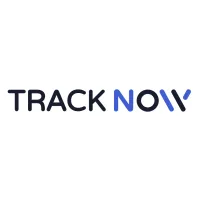No-logs policy – sometimes called a zero-logs policy – refers to the practice of a VPN provider not recording or saving information about a user’s online activity, such as:
- Browsing history: Websites you’ve visited and your actions on those sites.
- Connection timestamps: When a user connects and disconnects from the VPN.
- VPN session duration: The amount of time the user remains connected to the VPN.
- IP addresses: The user’s real IP address and the IP address assigned by the VPN server.
- How much bandwidth is used: The amount of data transferred during a session.
For a VPN to be truly considered "no-logs," there should be no monitoring or retention of these types of data. Other VPNs may still keep some minimal logs needed for operational reasons, but those that fully embrace a no-logs policy never do anything that could potentially link a user’s identity with their online behavior.
What are No-Logs Policy on VPN services?
-
Privacy assurance
The purpose of a VPN is to ensure online privacy, hiding a user’s internet activity from their Internet Service Providers (ISP), hackers, and even government surveillance. A no-logs policy supports this by ensuring that even if someone tries to infiltrate the VPN’s servers, there would be no user data available to access. This is important to maintain the trust and privacy users expect when subscribing to a VPN. -
Legal request protection
In some cases, VPN providers may receive legal requests from law enforcement or government agencies asking for user information. With a no-logs policy in place, the VPN provider can truthfully claim it has no record of a user’s online activity since there is no data to provide. This protects users from potential legal liability and the VPN provider from the penalties of noncompliance. -
Enhancing user trust
The VPN industry heavily relies on trust, and users are becoming more aware of data privacy issues. Having a no-logs policy that is clear and presented transparently builds confidence with users that their data will never be tracked, stored, or misused. Many VPNs subject themselves to third-party audits to verify their no-logs claims, which provides even more confidence. -
Less responsibility for VPN services
By not logging user data, VPN services reduce their liability. Logs pose a legal risk for providers if they are forced to transfer this information, or if a data breach exposes user information. However, with a no-logs policy, VPN providers eliminate this risk by ensuring there’s nothing that can be accessed, shared, or compromised.
How VPNs Substance Their No-Logs Promises
As competition heats up in the VPN space, some providers go a step further to prove their no-logs claims through:
- Independent control: Many reputable VPNs will also submit their systems and practices to independent scrutiny through audits from cybersecurity firms to verify their ability to adhere to a no-logs policy.
- Real-world example: Several VPN providers have received legal requests or government subpoenas yet been unable to provide user information because they don’t have any logs to furnish. These cases serve as evidence of the VPN’s no-logs commitment.
List of VPN services that support the No-logs policy:
- Proton VPN (Proton VPN is a well-known VPN service with 10 million+ users and is located in Switzerland. The tariff offering is not inexpensive either, but you receive stable and super-fast speed and every protection and innovative data solutions in return.).
- Surfshark VPN (Surfshark VPN's biggest draw is that you can connect an unlimited number of devices to a single subscription, which is not the case with most other VPN providers.).
- Amnezia (Amnezia is the best open-source VPN for bypassing censorship. It uses its own AmneziaWG protocol, allowing it to work even in the most heavily censored countries. A free version is available with no ads and unlimited data.).
- NordVPN (Strong privacy protection with military-grade encryption. It offers a large server network, allowing for fast and reliable connections, and is superb at unblocking streaming services. It has a few unique features such as strong security, fast speeds, and global coverage.).
- ExpressVPN (one of the most popular VPN services is ExpressVPN which has servers in over 100 countries globally. Quick, secure, trustworthy, anonymous.).
- TurboVPN (TurboVPN is a popular and ultra-fast VPN service. It has servers across over 110 locations and a simple user interface).
- VeePN (VeePN is a very popular VPN service with over 40 million active users. It has a reasonable price, an easy-to-learn interface for all the platforms.).
- PIA (Private Internet Access (PIA) is a VPN service known for its robust privacy features at an affordable subscription price. PIA offers a large network of servers in over 80 countries, unlimited device connections, and advanced security tools, as well as a user-friendly interface.).
- PureVPN (PureVPN is a fairly successful VPN service at low prices).
- CyberGhost (CyberGhost is a popular VPN service that offers the best conditions as well as favorable prices. For example, if you pay immediately for two years, you get an additional 2 months as a gift, and the price is €56.94 (that's only €2.19 per month)).
- IPVanish (IPVanish provides a cost-effective 2-year plan, ideal for those who want to use it for a while.).
- PrivateVPN (PrivateVPN is a VPN provider based in Sweden).
- Windscribe (Windscribe is an open-source VPN service with an ethical approach to business).
- Freevpnplanet (Freevpnplanet is a popular VPN service that offers low cost long-term subscription. It has good speed, 24/7 support, and a user-friendly interface.).
- Torguard (TorGuard VPN is a privacy-focused VPN service that provides users with a secure and encrypted connection to the internet.).
- Vpnproxymaster (Vpnproxymaster is a popular VPN-service with over 150 million users worldwide.).
- Mullvad (Mullvad is an unusual VPN service that offers a fixed subscription price of €5 per month, regardless of the subscription period. This would be a good option for those considering using a VPN for a short period of time.).
- TunnelBear (TunnelBear – VPN service based in Canada).
- Betternet (Betternet - VPN service with free and premium versions).
- VyprVPN (VyprVPN - a VPN Worth Considering).
- Phantom VPN (Phantom VPN - VPN service from the popular German company Avira).





